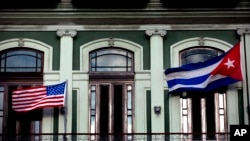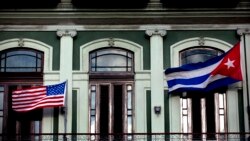On December 17th, President Barack Obama announced that the United States was ending an outdated approach to Cuba, stating that five decades of isolation had failed to accomplish the goal of a democratic and prosperous Cuba. The President noted, “Neither the American nor the Cuban people are well-served by a rigid policy that's rooted in events that took place before most of us were born. It's time for a new approach."
In late January, a U.S. delegation, headed by Assistant Secretary of State for Western Hemisphere Affairs Roberta Jacobson, arrived in Havana to exchange views on reestablishing diplomatic relations between the two countries as a first step to normalize our bilateral relationship. “The purpose of my visit was to discuss the specifics of moving ahead on the diplomatic re-establishment, and then in the second half of our conversations, to talk about a range of issues as part of bilateral dialogues,” said Assistant Secretary Jacobson. While in Havana, Assistant Secretary Jacobson met with representatives of Cuba’s independent civil society and emerging private sector, and the independent press.
While the United States seeks to advance discussions with Cuba on issues of common interest, the United States also brought up issues of deep disagreement between the two countries, including human rights.
“There is no doubt that human rights remains the center of our policy, and it is crucial that we will continue to … speak out about human rights publicly and directly now with the Cuban Government,” said Assistant Secretary Jacobson.
“The most important instrument in that context is called the Universal Declaration of Human Rights, and it is called the Universal Declaration for a reason-- because it is, in fact, universal. It applies to all of us,” she said.
“The road to the normalization of relations between Cuba and the United States will be very complex, but every road begins with a first step,” said Assistant Secretary Jacobson. “We know there will need to be many more. But this is the work of diplomacy in order to build a better and more productive relationship between our two countries.”






